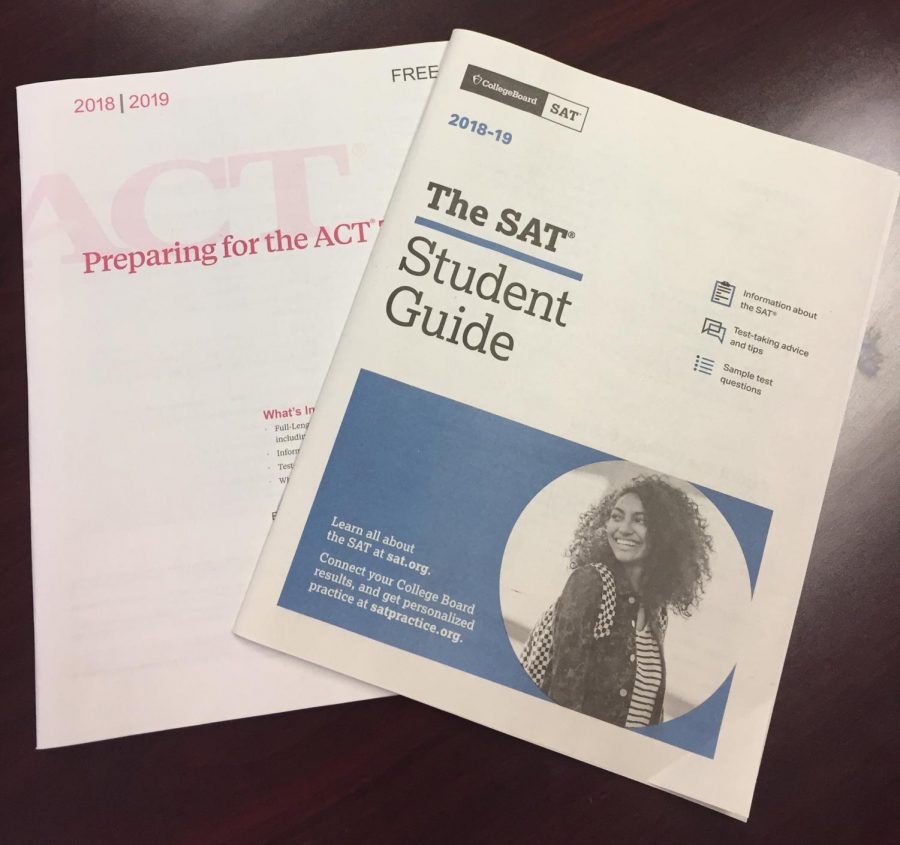The SAT and ACT are the two most common standardized tests students take for college. Test- optional universities allow students to choose whether or not they want to submit these standardized test scores.
Head to Head: Should more colleges and universities be test-optional?
December 17, 2018
Standarized tests not necessary for college applications
In light of early college admissions decisions, test-optional schools provide an alternative for students with higher GPAs but low test scores. There are over 700 colleges and universities in the U.S. that are test-optional, test-flexible or otherwise deemphasize test scores in the admissions process.
Test-optional colleges and universities can be found in 49 states, according to the National Center for Fair and Open Testing.
Some top-tier colleges and universities that are adapting to this admission process are the University of Chicago, Bowdoin College, Bates College, Wake Forest University, New York University and Smith College.
Colleges with test-optional admissions policies urge students to understand the importance of their high school transcripts. The high school transcript shows rigor, the amount of honors, AP or IB classes students are taking and their grades in those classes. With the lack of standardized tests, this is the next most important thing in the decision process.
This test-optional college trend eases the stress of students with test anxiety. One Saturday during your junior or senior year should not determine your admission to a college. SAT and ACT tests are expensive for students, almost $50 per test, and can misrepresent a student’s true capabilities.
Although this process does benefit students applying to college, it helps the test-optional universities as well.
Colleges adopting the test-optional policy saw an increase in the total number of applications by an average of 29 percent at private institutions and 11 percent at public institutions, according to a study on how test-optional colleges work by the National Association for College Admission Counseling.
Additionally, the average high school GPA of incoming freshmen at New York Universityincreased after standardized test scores were not used as a factor in the admission process, according to the New York Times.
Test-optional schools also promote diversity. The number of black and Latino students applying and being admitted to universities that went test-optional saw an increase in numbers, according to the same report.
First-year, non-submitters, had lower grades compared to those who submitted their test scores, according to the data from the report. However, non-submitters and submitters of test scores had equivalent graduating rates, with non-submitters having higher graduation rates at some schools. Although non-submitters may have lower grades compared to their test submitting counterpart, the graduation rates of both were merely the same.
Additionally, it is important to know that, while SAT scores alone won’t get you in or keep you out of a college, students with low scores will have a much harder time getting into schools that do not have a test-optional process. The College Board, which owns the SAT, claims that the combination of high school grades and test scores together gives colleges the best statistical prognosis of a student’s future.

Kiki Soto is a senior and Co-Editor in Chief of The Southerner. When she is not working on the newspaper and website, she is running around playing varsity...
Standardized tests help students, schools
The SAT and ACT are the two most common standardized tests students take for college. Test- optional universities allow students to choose whether or not they want to submit these standardized test scores.
Applying to college sucks. It does. As a senior who has actually applied to college, I’ve taken countless Advanced Placement classes, written thousands of words worth of essays and taken over a dozen standardized tests, which aren’t fun.
Standardized tests cost money and a full Saturday morning’s worth of time. In spite of the hassle, though, they are helpful to students and need to remain part of America’s educational culture. Test optional schools reduce the necessity for these tests and are, therefore, harmful to students and educators.
The greatest benefit of a standardized test is obvious. It is standardized. It’s unfortunate, but there is absolutely no other way for a college to assess and compare students across a common medium.
No matter how much our nation’s schools try (and many of them don’t), it is impossible for all high schools to have GPA equally reflect a student’s ability. In some schools, it’s ridiculously hard to get good grades.
In others, 4.0 students can consistently do all of their homework and studying while still at school. Since standardized tests are the same throughout all places of testing, a college doesn’t need to question the validity of a certain score compared to others taking the test.
There is no doubt that standardized tests make it easier for colleges to evaluate students. What may be harder to see, from a student’s perspective, is how standardized tests make the college application process easier for them. Students’ largest benefit of standardized testing is that they test ability rather than knowledge.
No college will ever require a student to take an exam displaying an understanding of calculus to get into the school. The SAT will never ask the location of the hippocampus or the capital of Peru because it can’t expect a person to know that due to different standards in different places.
There is such little consistency in how much a person’s high school teaches them. Every level of authority, from the quality of a district to the quality of a teacher, can affect a student’s accumulation of knowledge on a certain subject.
Fortunately, the SAT and ACT are not knowledge-based, but ability-based. The math section tests a student’s ability to think quickly and logically. The reading section ensures that a student has basic comprehension skills. These two abilities are more important than anything else colleges look for in a student. College can teach facts. It’s much more difficult to teach the raw ability that is tested on the SAT and ACT.
Because the SAT and ACT test more on ability than knowledge, standardized tests can actually help students in lower performing schools. If an incredibly bright student attends a school that fails to teach them any actual content, taking a standardized test can help that student be identified by a school that will actually offer them an education.
As much of a hassle as the SAT and ACT are, they offer an accurate way for colleges to compare applicants, and they make it much easier for students in poorly performing schools to show raw academic ability.
